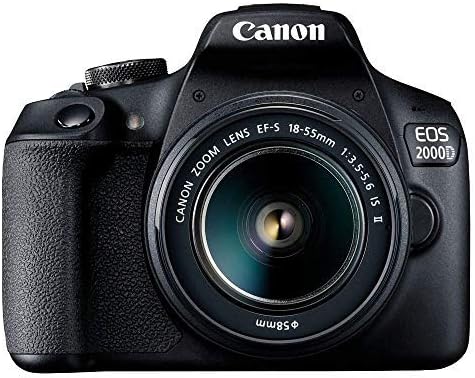Hey beginner photographers! Ready to dive into digital photography? Understanding your camera's key features can help you take amazing photos. Let's break down two important parts of popular cameras like the Canon EOS Rebel T8i and Canon EOS 2000D: the APS-C CMOS sensor and the DIGIC image processor.
APS-C CMOS Sensor: Your Camera's Eye
APS-C stands for Advanced Photo System type-C, and it refers to the size of your camera’s image sensor. APS-C sensors are smaller than full-frame sensors but bigger than micro four-thirds sensors. This balance makes them great for beginners.
What is CMOS?
CMOS (Complementary Metal-Oxide-Semiconductor) is the technology used in most camera sensors. CMOS sensors are popular because they save energy and take sharp, fast photos.
Benefits of APS-C CMOS Sensors
- Portable: Cameras with APS-C sensors are smaller and lighter, making them easy to carry.
- Affordable: These cameras are usually cheaper than full-frame cameras, perfect for beginners.
- Great Quality: APS-C sensors produce high-quality photos with good detail and low noise.
Few Downsides
- Depth of Field: It’s harder to get that nice, blurry background effect with APS-C sensors.
- Low-Light Performance: APS-C sensors aren’t as good in low light as full-frame sensors.
DIGIC Image Processor: Your Camera’s Brain
What is DIGIC?
DIGIC stands for Digital Imaging Core. It’s Canon’s name for their image processor, which is like the brain of your camera. It takes raw data from the sensor and turns it into beautiful photos.
What DIGIC Does for You
- Reduces Noise: DIGIC cleans up your photos, reducing graininess.
- Adjusts Colors: It corrects colors, making your photos look vibrant and natural.
- Balances Whites: DIGIC ensures your photos have the right color balance.
- Sharpens Images: It makes your photos look sharp and detailed.
Why Newer DIGIC Processors are Better
- Speed: Newer DIGIC processors work faster, letting you take photos quickly.
- Improved Quality: They offer better noise reduction and color accuracy.
Canon 2000D vs. EOS R100: Which to Choose?
Here’s a quick comparison of the Canon EOS 2000D (Rebel T7) and the Canon EOS R100 with the RF-S18-45mm F4.5-6.3 lens.
| Feature | Canon EOS 2000D (Rebel T7) | Canon EOS R100 (RF-S18-45mm F4.5-6.3) |
|---|---|---|
| Sensor | APS-C CMOS (24.1MP) | APS-C CMOS (24.2MP) |
| Image Processor | DIGIC 4+ | DIGIC 8 |
| Autofocus | 9-point phase-detect | Dual Pixel CMOS AF II (493 points) |
| Video | Full HD (1080p) at 30 fps | 4K UHD at 30 fps |
| Screen | 3.0-inch fixed touchscreen | 3.0-inch fully articulated touchscreen |
| Viewfinder | Optical viewfinder | Electronic viewfinder (EVF) |
| Lens Mount | EF/EF-S | RF |
| Kit Lens | EF-S 18-55mm f/4-5.6 IS II | RF-S 18-45mm F4.5-6.3 IS STM |
Key Points
- Image Processor: The EOS R100’s DIGIC 8 is newer and better, offering better performance in low light and overall image quality.
- Autofocus: The EOS R100 has a more advanced autofocus system, ideal for moving subjects and low light.
- Video Quality: The EOS R100 supports 4K video, while the 2000D only does Full HD.
- Screen and Viewfinder: The EOS R100’s fully articulated touchscreen and electronic viewfinder offer more flexibility and detail.
Additional Considerations
- Price: The EOS R100 is usually more expensive than the 2000D.
- Lens Compatibility: If you already have EF or EF-S lenses, they work with the 2000D. The EOS R100 requires RF lenses.
Wrapping It Up
Choosing the right beginner camera depends on your needs and budget. The Canon EOS R100 is great for those looking for advanced features like better autofocus and 4K video. It’s perfect if you’re ready to level up your photography. The Canon EOS 2000D is ideal for beginners—it’s affordable, compatible with a wide range of lenses, and a solid starting point for your photography journey.
By understanding the APS-C CMOS sensor and DIGIC image processor, you’re well on your way to capturing stunning photos. Happy shooting!


Comments
Post a Comment